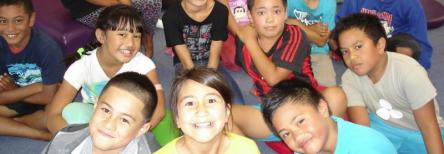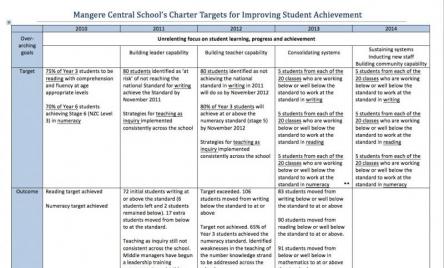1. School leadership is intentional and direct

In the pecha kucha teachers at Mangere Central School talk about accelerating the achievement of learners to reach the National Standards in increasingly high number. The school’s middle leaders are clear that their role and responsibility for students’ achievement extends beyond their own class. They are appraised on the quality of teaching and learning of students and teachers across their team.
One of school principal Maria Heron’s strengths is her ability to grow leadership in others. She draws the right people from inside and outside the school community, encourages them to take the lead in initiatives and trusts in their ability to get things done. Hers is a high trust model of leadership.
Maria enabled former Associate Principal Rebecca KauKau to initiate her National Aspiring Principals’ Programme inquiry in the school and supported middle leaders to develop the inquiry.
The inquiry focused on turning Neil Mahoney’s vision of a Professional Learning Community into reality to create their own unique, knowledge-building and inquiry approach. This is described more fully in the slide sequence.
Download the overview of Rebecca KauKau's NAPP inquiry:
Targeting learning: talking and tracking (PDF 938 kB)
Reflective questions
- How does your school develop middle leaders’ skills, knowledge and dispositions*?
- How is leadership shared among your staff to build their experience and capacity?
- At Mangere Central School the initial changes happened by building on existing structures - simply allocating two team meetings a term to focus on target students and teacher learning. What structures exist in your school that could be built on and/or similarly enhanced?
* Read more about this in School Leadership and Student Outcomes: Identifying What Works and Why Best Evidence Synthesis (Robinson et al, 2009).

